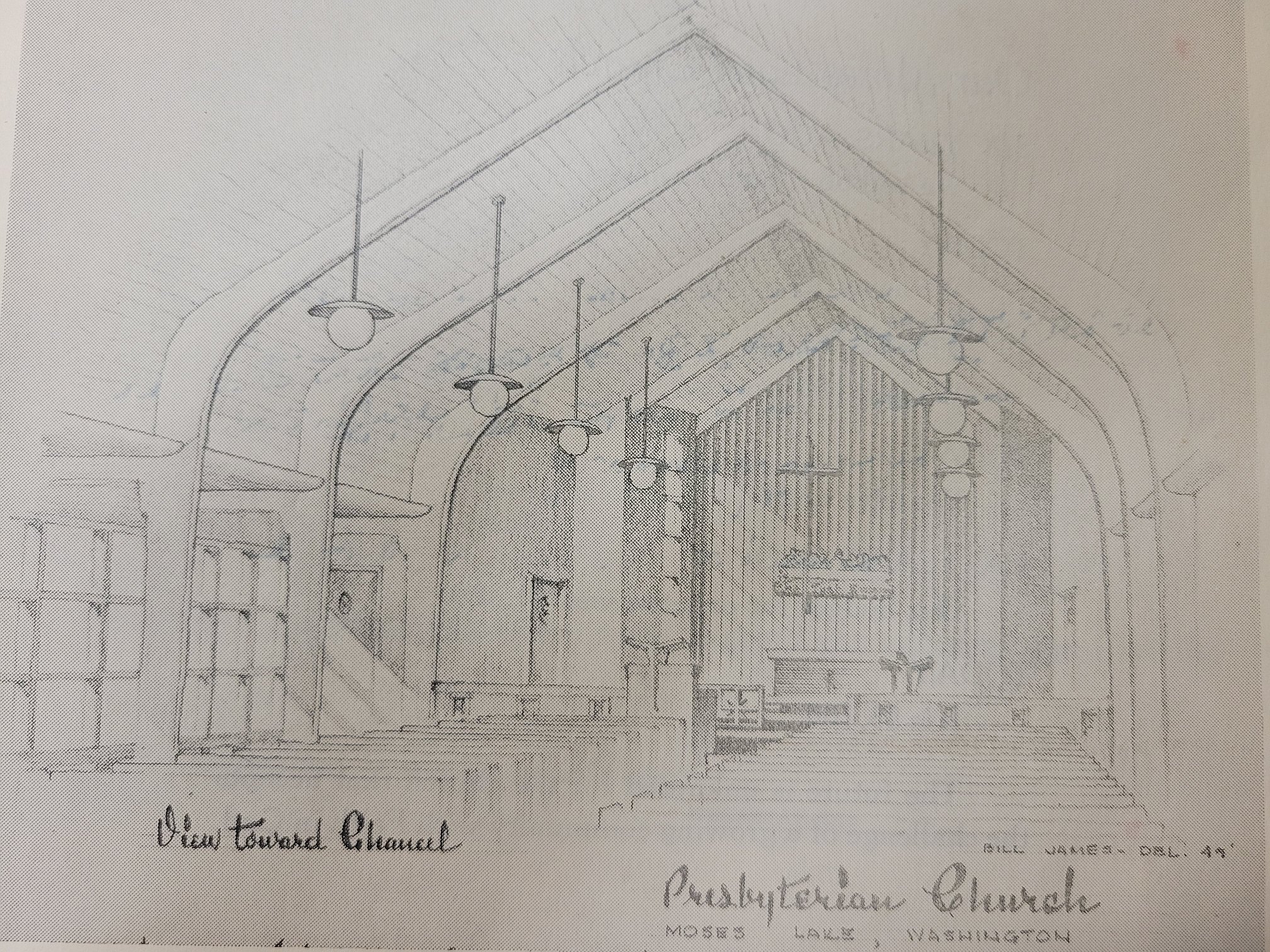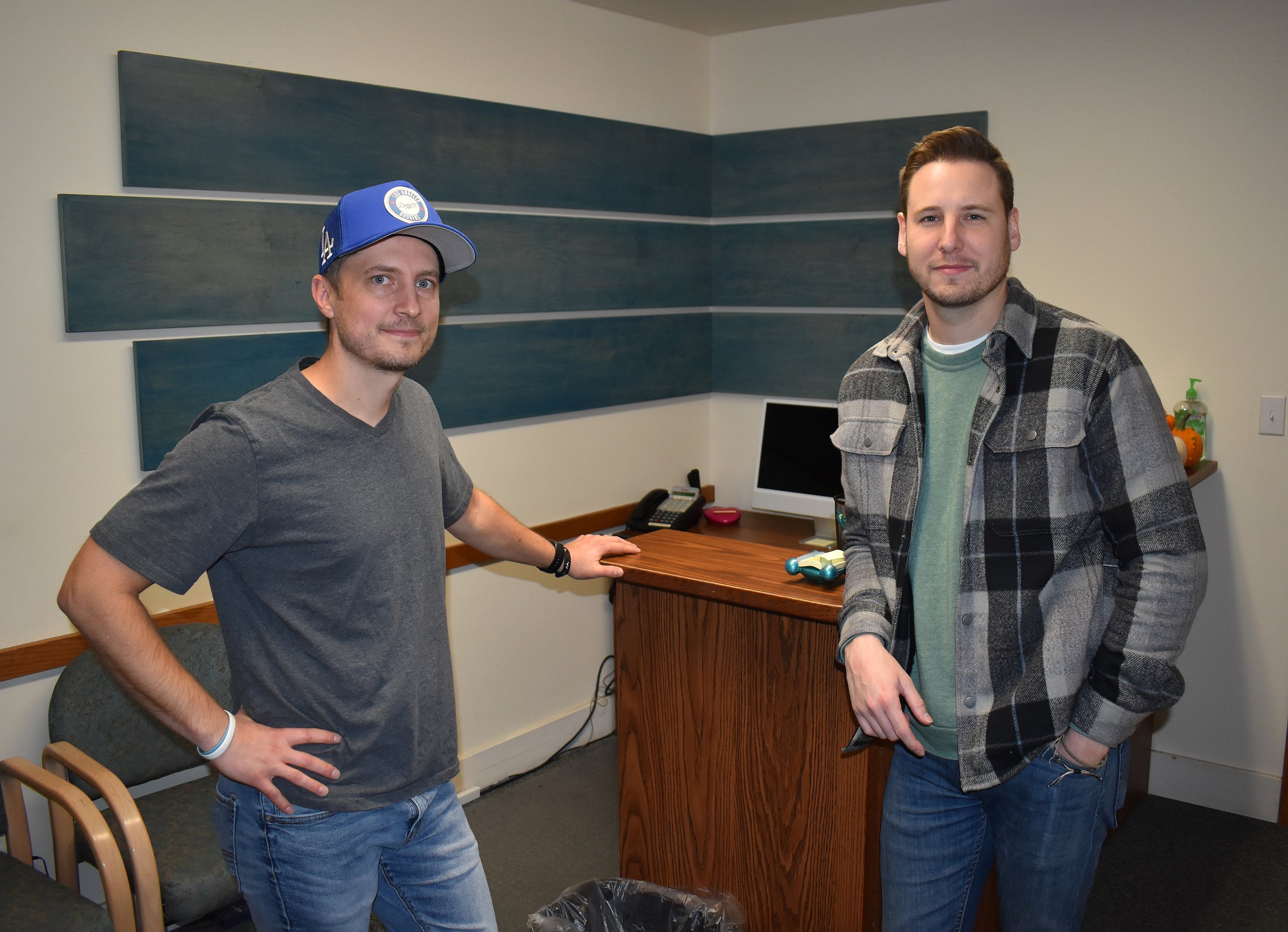Moses Lake Presbyterian marks 115 years Sunday
JOEL MARTIN | Hagadone News Network | UPDATED 2 years, 4 months AGO
Joel Martin has been with the Columbia Basin Herald for more than 25 years in a variety of roles and is the most-tenured employee in the building. Martin is a married father of eight and enjoys spending time with his children and his wife, Christina. He is passionate about the paper’s mission of informing the people of the Columbia Basin because he knows it is important to record the history of the communities the publication serves. | November 3, 2023 1:30 AM
MOSES LAKE — The roots of Moses Lake Presbyterian Church run deep, a fact that the church will celebrate Sunday with a special service on its 115th birthday.
“There was a group of people meeting for Bible studies way back in 1908,” said Eric Frey, who’s been the church’s senior pastor since 2000. “They got together, 35 of them, and they signed a letter and sent it to the leadership of the Presbyterian Church that oversaw the Wenatchee and Bellingham area, and asked for a church to be established here in Moses Lake.”
The church technically predates not only Moses Lake but Grant County. The county was formed in 1909 out of the eastern part of Douglas County, and Moses Lake, formerly Neppel, was incorporated in 1938. The newly established congregation called itself the Moses Lake Presbyterian Church of Neppel, according to a history of the church given to the Columbia Basin Herald by church secretary Val Ayerdi-Seibel. Its minister, the Rev. James Thompson Jr., led the church for its first year while also tending to two other congregations.
“He would ride his bike all the way to Othello,” Frey said. “He was between Ephrata and here and Othello and trying to care for the three congregations.”
Faith foundation
In 1926, the Ladies’ Aid and Missionary Society raised enough money to build a church at Fourth Avenue and Division Street (then called Germania Street), where Umpqua Bank now stands, Frey said. The growing church was cramped, and by the 1950s, the situation had grown untenable. In 1955 the church bought four acres on Ivy Avenue.
“They picked up the church building, and they put it on a big flatbed and moved it across town and brought it here in 1957, I think, was the year,” he said. “And that building still stands.”
The original building is now used for children’s ministry, Frey said. County records show the building was added to in 1960, 1975 and 2002. The present building houses an auditorium for worship services, a fellowship hall, a kitchen and classrooms.
A change in denomination in 2012 made it necessary to change the church’s name, Frey said. The church’s full name is Moses Lake Presbyterian Basin Community Church, usually shortened to Moses Lake Presbyterian Church. Besides Frey and his wife Lynn, the church has a worship pastor and a youth pastor, as well as several lay staff members. Membership numbers are a little vague, but about 1,200 people call Moses Lake Presbyterian their church, Frey said.
Service tradition
Along with its name, the church changed its logo from a lighthouse to a basin, commemorating Jesus washing his disciples’ feet at the Last Supper. This emphasizes Moses Lake Presbyterian’s tradition of serving the community outside its own walls, Frey said.
“What surprised me when I got here was, we had a small and older congregation,” he said. “They had all been part of the church for years and years, but they were also the people that were part of every other group in the community. They served on the hospital board and they served in the college and the community concerts. They were volunteering in everything in the community that needed to be done … They believed that being a good Christian meant that you cared for your community, that that was intertwined and that you really weren't being a good Christian if you weren't engaging in serving.”
Ayerdi-Seibel started volunteering four years ago and has been the secretary for two, she said, drawn by that approach to the faith.
“One of the first times I came here, Pastor Eric said, ‘We are the hands and feet of Jesus Christ in the world. So we are to go to our community and show them Jesus' love. If they don't know Jesus it's because we as Christians are not showing it,’” she said. “ And that phrase really impacted me because I was like, ‘Well, this is true. This is why I haven't been going to church.’ We walk the talk.”
Welcome sanctuary
That relationship is a two-way street, according to Youth Pastor Matt Janosov. A native of Southern California, he served at several churches before moving with his wife to serve at Moses Lake Presbyterian 10 years ago.
“The warmth that we experienced from the people here, I think that was the biggest deal. The other thing that stuck out from Southern California was the reality that people were willing to step into life and be honest about where they were. In Southern California, there's so much wealth and life feels like you're always putting up a front. (With) people in Moses Lake, it felt like the front was, 'This is who I am. Accept me or don't. That's okay.’”
“In a town like this, too, there's one high school and everybody knows each other. So you also can't put on a front,” agreed Worship Pastor Jon White. “(In a) big city, if you find someone who's from that big city still living there, that's such a rare thing. Everybody just moves around … (In Moses Lake) everybody knows everybody. You can't hide here.”
Ayerdi-Seibel expressed the same appreciation for the community.
“People are very welcoming. I like that,” she said. “People here are very kind and friendly. I didn't grow up in Moses Lake. I grew up in a different country. So when I moved here, these people became my friends, my family.”
Growing concern
In a time when mainline denominational churches are dwindling, Moses Lake Presbyterian is growing, and the pastoral team attributed that largely to reaching across generational lines. Besides the usual worship services and Sunday school for adults and children, Frey said the church is working on involving activities that can include both.
“Traditionally, we've warehoused kids,” he said. “You know, ‘You go down to your classes, and the adults will be over here.’ What we're finding is, much like the early church as talked about in the book of Acts, everybody was together. Wednesday night we fill this fellowship hall with families ..and we all have dinner together and do activities together.”
“What Eric and Lynn have been able to do is get the older generation to buy into the fact that church exists for the next generation,” Janosov said. “They've just poured energy and time and effort and money into the reality that this next generation matters.”
“Someone once said that the way to tell if your church is really effective is, if all of a sudden it was to go away, would the community even notice?” Frey said. “And I think the community would notice if our church was gone if all who were here just were no longer plugged in anywhere.”
ARTICLES BY JOEL MARTIN

Space Burger booth open March 13-15
MOSES LAKE — Those who can’t wait for the Grant County Fair can get their Space Burger fix next weekend, according to an announcement from the Lioness Club of Moses Lake. The iconic Grant County sandwiches will be available at the Grant County Fairgrounds March 13-15, according to the announcement. There is no admission fee to get into the fairgrounds that weekend.

SENIOR EVENTS: March 2026
COLUMBIA BASIN — Plays, art shows, auctions and more await seniors in the Columbia Basin this month. Here are some opportunities to get out and about in March.

Valentine’s Day cards flood Brookdale Hearthstone with love
MOSES LAKE — Residents at Brookdale Hearthstone Assisted Living in Moses Lake got Valentine’s Day greetings from across the country last month. “I believe that the only states we have not received (cards from) yet are Vermont and Maine,” Lifestyle Director Imelda Broyles said Feb. 24. “We keep receiving new cards every single day. They have not stopped. My residents are in awe with every single one of the cards that we’ve been receiving.” The Hearts Across America project started as a way for children in school classrooms to exchange Valentine’s Day cards with classes in other states or even countries, but the idea has expanded to senior living facilities, according to the project’s social media.





